
In the country’s last parliamentary elections held under the mixed system, opposition groups are attempting to foil the ruling party’s plan for a historic third term.
Tomorrow, Georgians will vote to choose the parliament for the next four years, a vote which could grant a third victory to Georgian Dream. Alternatively, the results could trigger the need for a coalition government, also unprecedented since the country restored independence over 29 years ago.
Georgian Dream, which ousted the United National Movement (UNM) in 2012, would need 76 out of 150 seats to form the government.
This means that the ruling party would need to pass the 40.5% threshold (48 seats) with the party list and also win at least 28 additional mandates through the majoritarian constituencies, or seek support from other parliamentary groups.
If no candidate garners a majority of votes in any majoritarian seat, the two candidates with the best results will face off in run-offs on 21 November.
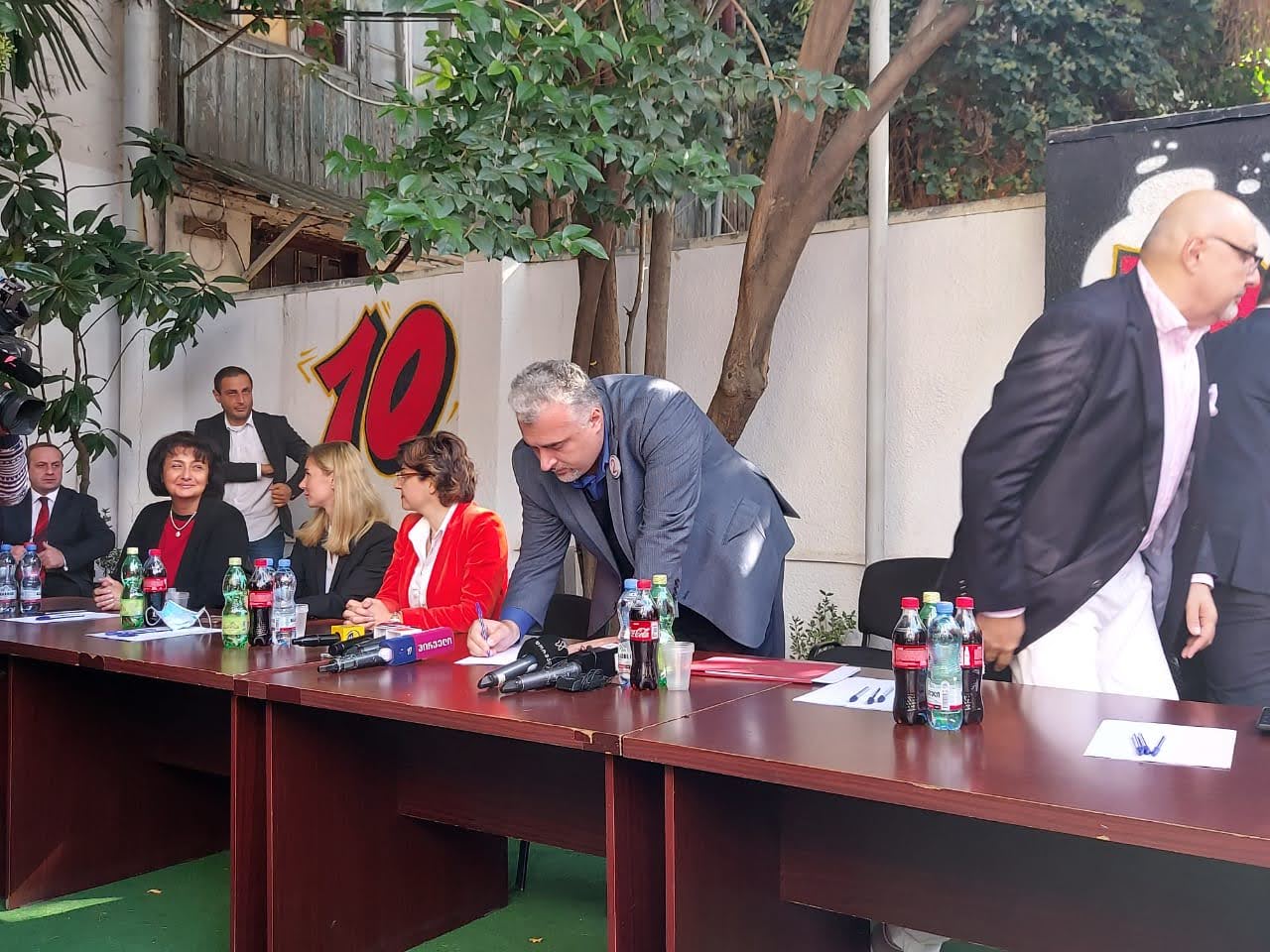
On 29 October, the EU pledged to deploy a ‘massive Diplomatic Watch effort’ with over 70 observation teams, adding to the election observation missions from the OSCE/ODIHR, NATO Parliamentary Assembly, and PACE.
It remains unclear how concerns over pandemic safety may affect the turnout, but the authorities have assured the over 3.5 million eligible voters that it was important and safe enough to go to polls.
Government initiatives and administrative resources among major factors
While the Chair of the ruling party and the former PM Bidzina Ivanishvili has been largely absent from the campaign, except for on election billboards, opposition groups have accused the government of using his money to swing the public mood.
In early October, Ivanishvili’s Cartu Foundation handed over the former Tbilisi hippodrome to the municipal authorities, which was followed by a promise from Tbilisi Mayor Kakha Kaladze to develop it into a park.
This week, Transparency International Georgia, ISFED and other watchdog groups identified pressure on public employees and recipients of social assistance programmes, as well as the involvement of public employees in campaigns to support candidates of the ruling party, as common violations.
In an August poll from NDI, respondents named vote-buying (30%) as the most serious challenge to the integrity of elections, twice as many as ‘violations during ballot casting’.
On 3 September, Georgian Dream MPs voted in favour of criminalising voter intimidation and coercion, and violation of vote secrecy. This included a prohibition on impeding the movement of a voter within 25 metres of a polling station.
The initiative met no support from opposition groups, who alleged that Georgian Dream had not committed to implementing the prior regulations.
Georgian Dream against ‘traitors’, ‘deep-fakes’ and ‘riots’
In the run-up to election day, Georgian Dream have focused more actively on what they called the ‘radical’ and ‘criminal’ opposition, mostly targeting the UNM which now leads the Strength in Unity coalition bloc.
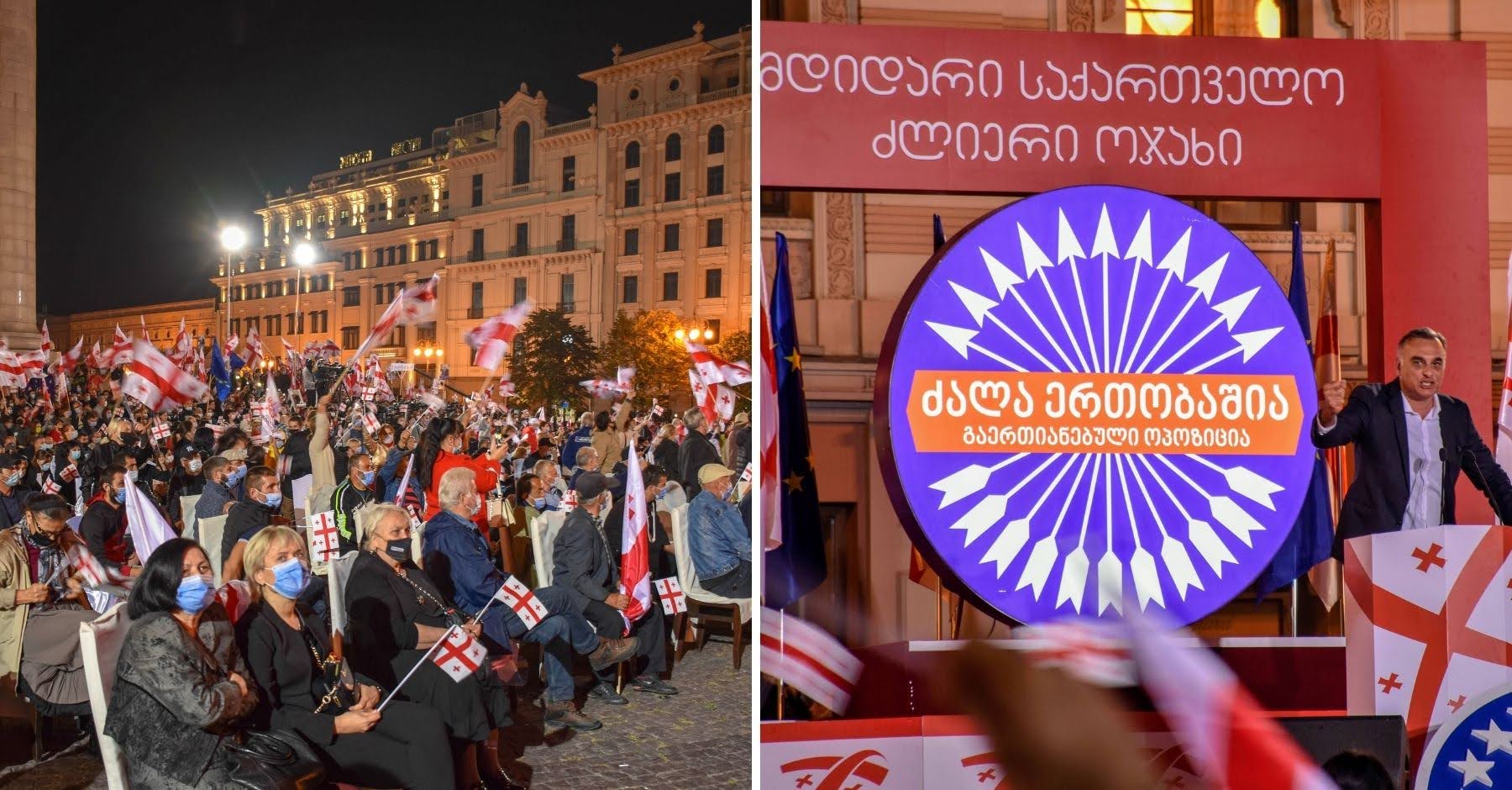
On 28 October, parliamentary majority leader Mamuka Mdinaradze accused the UNM of seeking ‘to radicalise the situation and cause riots’ during a rally planned outside the parliament after polls close on Saturday.
Two days before the voting day, Georgian Dream’s Executive Secretary, Irakli Kobakhidze, also accused the ‘radical opposition’ of planning to obstruct the work of polling precincts by staging and falsely claiming violations.
Kobakhidze also warned on 26 October of upcoming fake visual materials that would use ‘deep fake’ digital technology to mislead the voters during the elections. He refused to provide further details.
Indictments of two experts within the state border delimitation commission dealing with the Georgian-Azerbaijani border, including the contested Davit Gareja Monastery Complex, weeks before the voting day triggered suspicion that the move was politically timed.
The ongoing case has been accompanied by Defence Minister Irakli Gharibashvili calling political groups associated with the UNM ‘traitors’ who ‘handed over sacred places’ to Azerbaijan.
Throughout the campaign period, political groups had the chance to talk about their plans in several recurring programmes on major national TV channels.
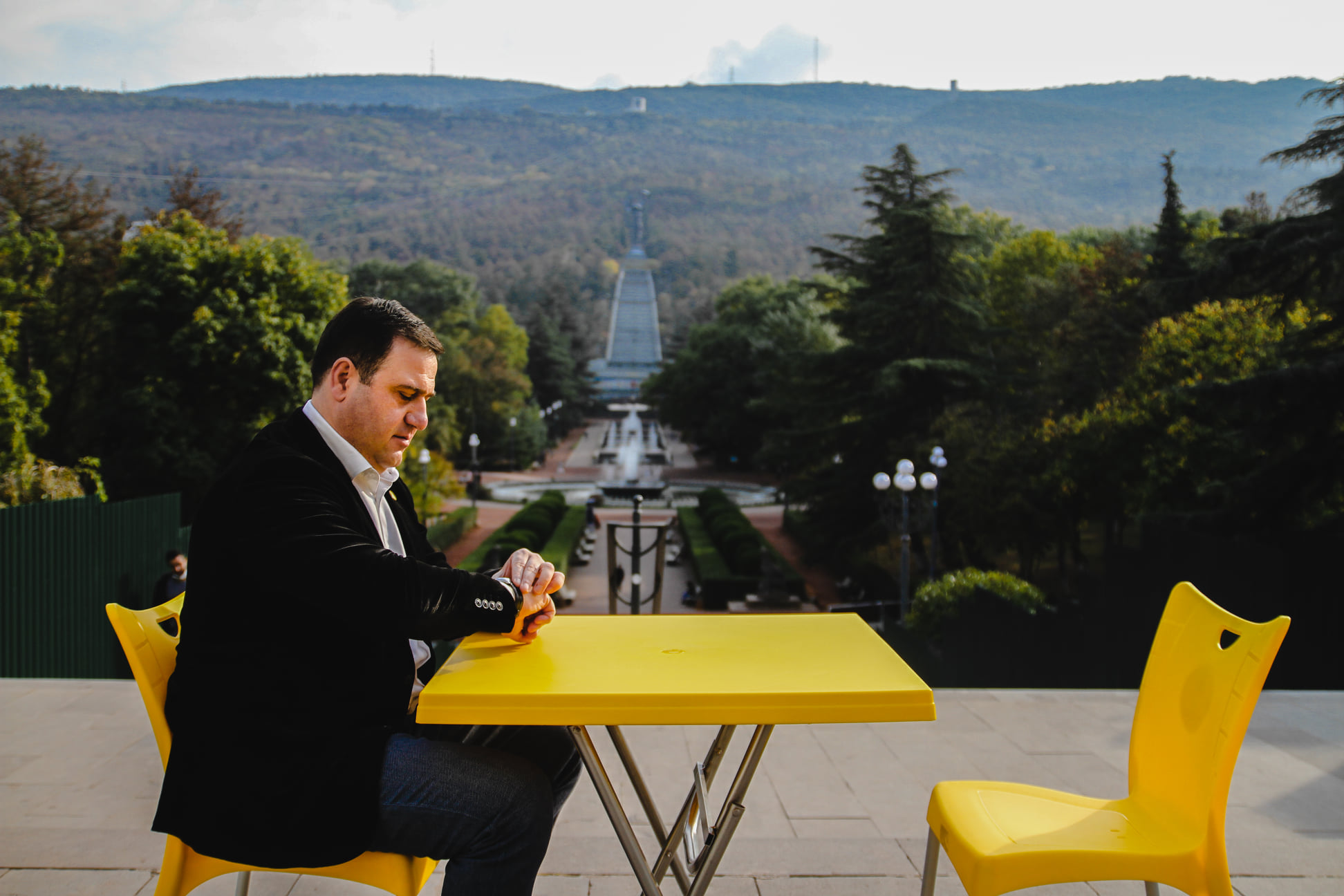
However, several government critics castigated the ruling party’s prime-ministerial candidate, Giorgi Gakharia, for refusing to debate rivals on TV.
Political violence and xenophobia
The campaign also saw several incidents of violence. The most serious of them took place in Tbilisi and the southern Georgian municipalities of Gardabani, Bolnisi, and Marneuli.
On 29 September, journalists were threatened or attacked during clashes between supporters of Georgian Dream and the UNM-led Strength in Unity bloc in Marneuli.
[Read more on OC Media: Journalists and opposition supporters attacked in Marneuli brawls].
Both the ruling party and opposition groups claimed throughout the campaign that their campaign materials, most frequently posters, were targeted.
On 11 September, the Central Election Commission (CEC) fined the Alliance of Patriots ₾2,000 ($620) for releasing an anti-Turkish video.
The party faced bigger public outcry a week earlier for displaying a billboard that suggested Adjara was at risk of breaking away from Georgia.
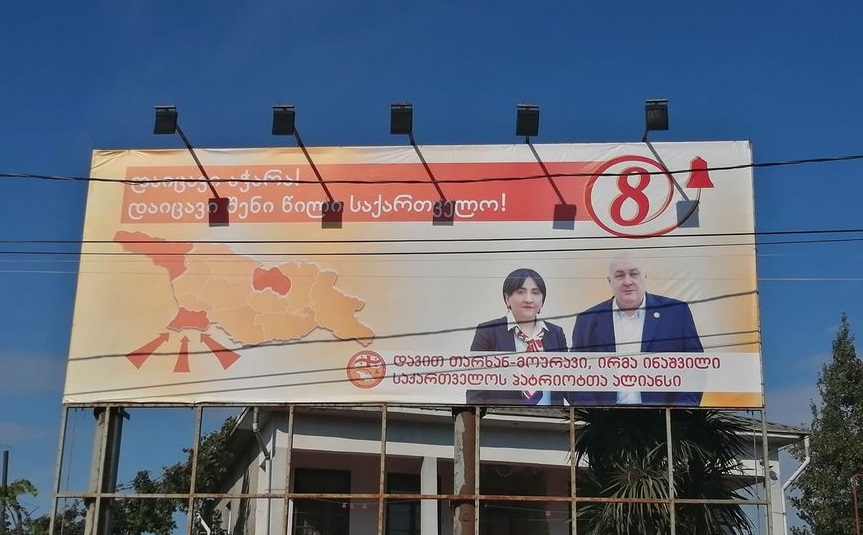
The Alliance of Patriots are also still under investigation by the State Audit Office after an investigation by the Dossier Centre revealed they were working on an $8 million campaign with a Russian consultancy firm linked with the Kremlin.
Party programmes vs polarity
In an August survey by NDI, 6 out of 10 of the top problems that voters said they and their families faced were related to the economy: jobs, poverty, rising prices, pensions, wages, and affordable healthcare.
Most major parties published at least some of their policy positions and plans on their websites, used Facebook extensively, and had the opportunity to talk about their plans on the Georgian Public Broadcaster, a publicly funded TV channel, as well as on popular private TV channels.
However, as the OSCE/ODIHR election observation mission noted on 16 October, the campaign was largely focused ‘on personalities rather than substantive issues’.
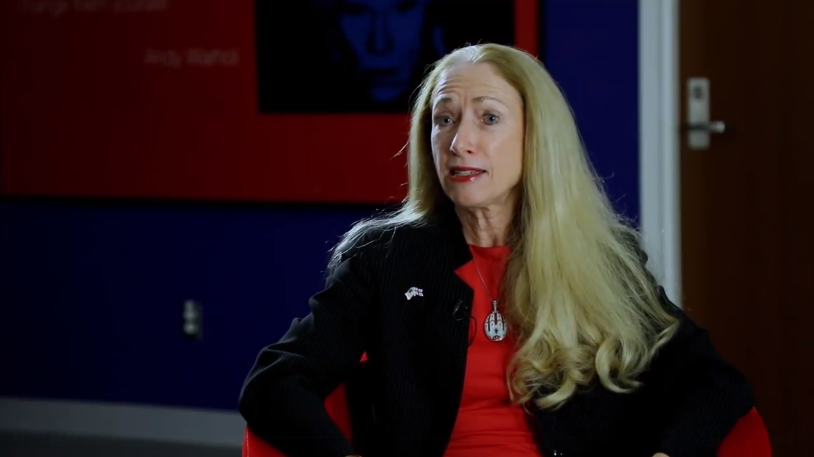
Some groups, including European Georgia, Lelo, Aleko Elisashvili’s Citizens, and the Alliance of Patriots, urged voters to reject the rivalry between the current and formerly ruling political parties, with each offering themselves as an alternative to this polarity.
Analysis from research group the Caucasus Research Resources Centre (CRRC) Georgia has suggested that supporters of different political groups in Georgia actually did not differ much in terms of policy preferences or social values.
What divided Georgians, according to the study, was political leaders and what they thought about specific partisan events.









